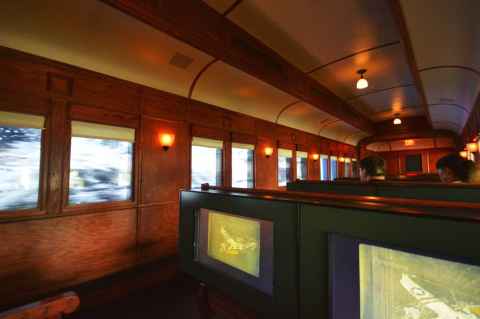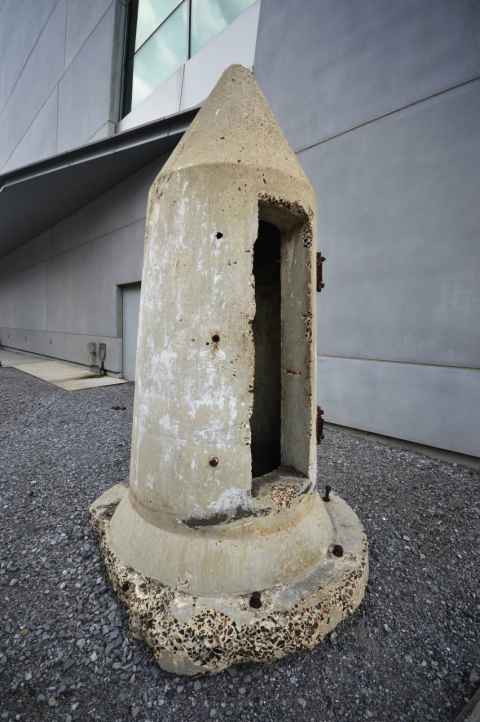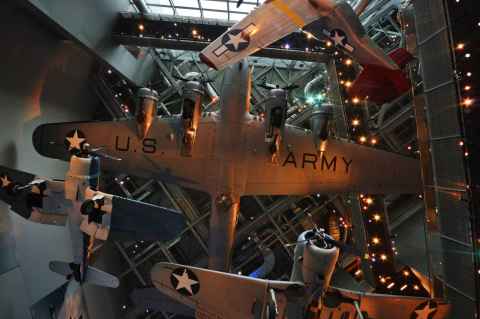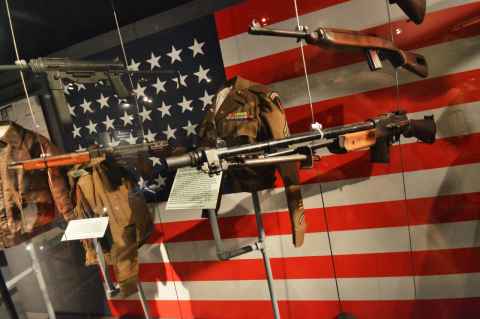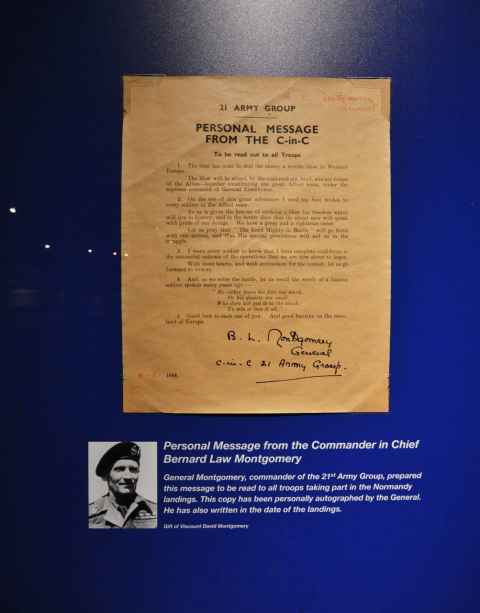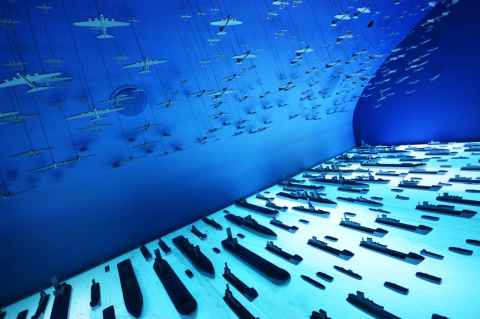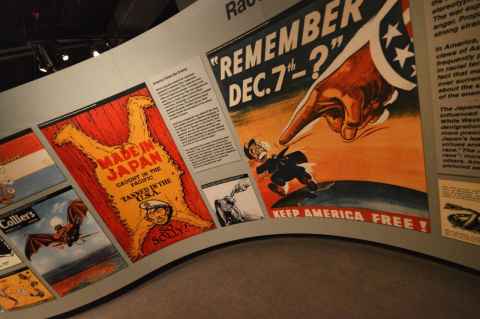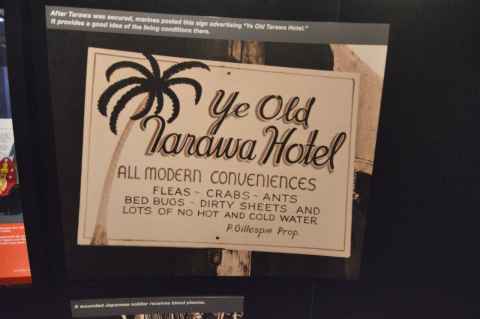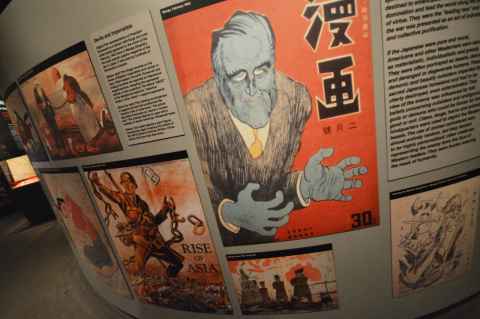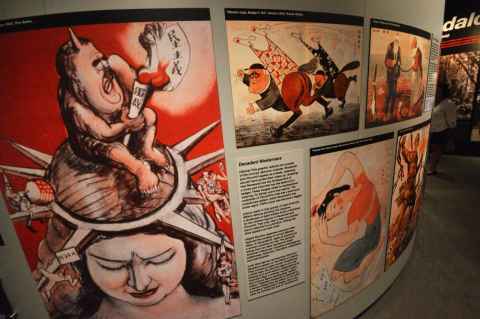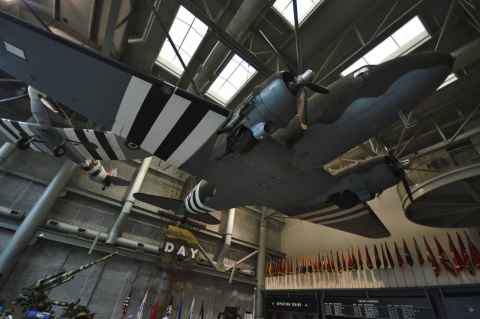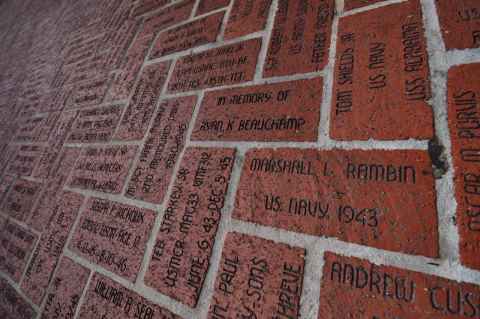National World War II Museum
World War Two. No other war has been as costly in human lives. Even in a century with enough atrocities to have part of it dubbed the hemoclysm, or "blood-flood", it stands out[a]. No other war has been studied as much. In retrospect, it was also a very morally clear conflict: on one side, totalitarian ideologies of various kinds, and on the other side, freedom. Well, except freedom had the Soviet Union on its side and that was for sure not very democratic, so in western history writing, we tend to forget about that particular actor. That particular actor, in turn, tend to forget about carving up Poland with Hitler, and the whole communism and Iron Curtain thing when the Soviet Union basically colonized and oppressed eastern Europe so badly that those countries want absolutely nothing to do with Russia nowadays.
But the Germans were evil, and showing western allied versus Nazi battles is about as morally clear as you can get, so if you want something easy, then show that. The History Channel ended up known as "The Hitler Channel" because of all the World War II documentaries[b].
So what to expect from something called The National World War II Museum?
I started out expecting a bunker made from concrete mixed with dried and ground up armchair general.
I didn't get that.
For a European like me, World War Two is about Europe. It's the last Great European War, and the Nazis are the bad guys. What the museum gave me was an American perspective of the conflict. Here, the main theater is the Pacific, and the main enemy is Japan. It was startling to see the difference in scale between the Normandy landings, which I assumed were the biggest ever, and the Okinawa landings, which I assumed were on the order of ten guys in two boats; when in reality the Okinawa landings[c] were bigger than the Normandy landings (183,000 in the initial wave compared to 156,000).
So much for having a correct, calibrated picture of World War Two. The coverage of the Pacific theater was very interesting and while I did know that World War II can be said to have started with the Japanese invasion of Manchuria, I didn't really know much of what Japan's policies were, how they were seen by themselves, or how they viewed the allies or were viewed by them. It's not a pretty sight. The war against Japan evolved into something like the Eastern Front in Europe - a much more barbaric war (to the extent that there are degrees in Hell). Polls on what the allies should do with Japan included the option "physical extermination"[d], the same poll about Germany did not have that option. Overall, the United States showed its most racist side in the propaganda (and the Civil Rights Movement[e] was still a couple of decades off). Given everything, though, I would have dropped the bomb. Imperial Japan was a militaristic, death-worshipping hellhole[f] of a country that the world and modern Japan is much better off without. I feel about as much for the civilian deaths there as I feel about the German civilian deaths, which is "not much at all". In a way, letting your country turn into a virulent, oppressive, racist, warmongering perversion should hurt.
I must take this chance to praise Germany for being the only axis power to have the courage and strength to really dig into their actions during World War Two and afterwards. Their willingness to get to grips with that sordid part of their history is quite unique. Italy has politicians who praise Mussolini, Austria is only now admitting that they were in on nazism, Japan is too afraid of losing face to understand why neighboring countries dislike them, and Russia thinks they did eastern Europe a favor by occupying it for half a century. It's sad that all that this has bought Germany are a slew of nazi jokes.
